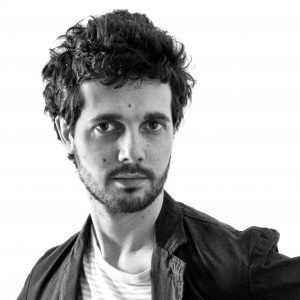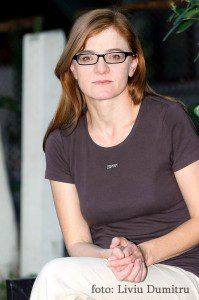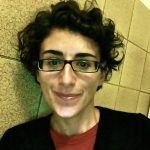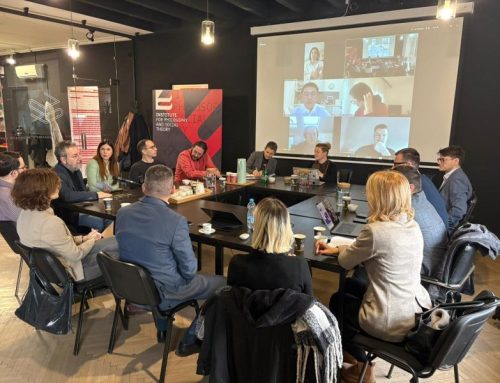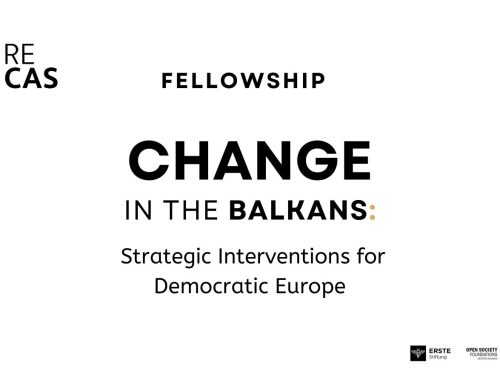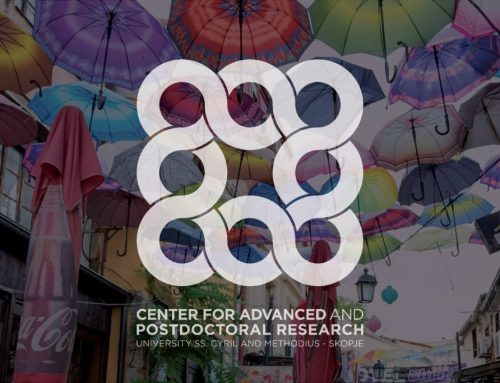The Fellows 2014/2015
This year, the Center for Advanced Studies in Southeastern Europe (CAS – SEE) invited eight Fellows from eight different countries. In below you can see our Fellows.
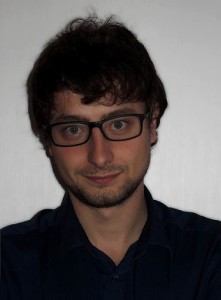 Marco Abram (Roma – Italy )
PhD in History at the University of Udine, Master in History of Europe at the University of Bologna. His research interests mainly focus on the national question in Yugoslavia and he dedicated his doctoral thesis to the analysis of Socialist Yugoslavism in Belgrade. In the last year he has worked as researcher at Osservatorio Balcani e Caucaso, involved in a project aimed at studying the Italian civil society activism during the Yugoslav wars in the 1990s. Between 2009 and 2014 he has been part of the editorial board of the online historical review “Diacronie. Studi di Storia contemporanea”.
Marco Abram (Roma – Italy )
PhD in History at the University of Udine, Master in History of Europe at the University of Bologna. His research interests mainly focus on the national question in Yugoslavia and he dedicated his doctoral thesis to the analysis of Socialist Yugoslavism in Belgrade. In the last year he has worked as researcher at Osservatorio Balcani e Caucaso, involved in a project aimed at studying the Italian civil society activism during the Yugoslav wars in the 1990s. Between 2009 and 2014 he has been part of the editorial board of the online historical review “Diacronie. Studi di Storia contemporanea”.Marcello Barison (Padova – Italy) Marcello Barison received his BA and MA at the University of Padua. His thesis (MA dissertation), which then turned into his first book (La Costituzione metafisica del Mondo), concerns the concept of world in the contemporary German thought. From that work, also owing to an annual stay at the Humboldt Universität zu Berlin, he explored the twentieth century German philosophy more and more thoroughly, especially devoting his attention to the figure of Martin Heidegger, the thinker on which he then conducted also his doctoral dissertation. He completed his doctoral studies at the Istituto Italiano di Scienze Umane (SUM) in Naples in collaboration with the Albert-Ludwigs-Universität Freiburg. In addition to lectures and publications focusing on 20th century continental philosophy, he has written on contemporary art, literature and architecture.
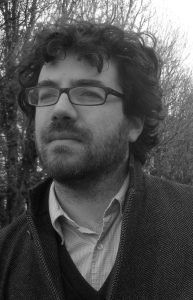 Marco Bresciani (Trieste – Italy)
Marco Bresciani was educated at the Scuola Normale Superiore and at the University of Pisa, where he obtained his PhD. He was post-doc fellow at the Istituto per la Storia del Movimento di Liberazione Nazionale in Italia, at the Remarque Institute (NYU), at the Centre de Recherches Politiques R. Aron (EHESS). So far, his interests have focused on the global and European history of socialism, antifascism and anti-totalitarianism, with special regard to intellectual networks in Italy, France and US, from the 1930s to the 1970s. His current project deals with the transition from the imperial to the national sovereignty, the subsequent political, social and cultural crisis and conflicts and their persistent legacies in the former Oesterreiches Küstenland, annexed by Italy in 1918.
Marco Bresciani (Trieste – Italy)
Marco Bresciani was educated at the Scuola Normale Superiore and at the University of Pisa, where he obtained his PhD. He was post-doc fellow at the Istituto per la Storia del Movimento di Liberazione Nazionale in Italia, at the Remarque Institute (NYU), at the Centre de Recherches Politiques R. Aron (EHESS). So far, his interests have focused on the global and European history of socialism, antifascism and anti-totalitarianism, with special regard to intellectual networks in Italy, France and US, from the 1930s to the 1970s. His current project deals with the transition from the imperial to the national sovereignty, the subsequent political, social and cultural crisis and conflicts and their persistent legacies in the former Oesterreiches Küstenland, annexed by Italy in 1918.
Tamara Caraus (Buchares – Romania) Tamara Caraus is a Researcher at New Europe College, Bucharest, Romania. Her current area of research includes political theory of cosmopolitanism, dissidence, civil disobedience, global resistance, and agonistic/radical democracy. Tamara Caraus has undertaken research projects in political philosophy at Institut fur die Wissenschaften vom Menschen, Vienna, Austria; University of Uppsala, Sweden; University of Groningen, The Netherland; Oxford University, UK; Palacky University of Olomouc, Czech Republic and others. She contributed with articles to various academic journals and edited volumes, published Tzara mea (2001), Ethical Perspectives on the Postmodern Rewriting (2003), Traps of Identity (2011), and co-edited Cosmopolitanism and the Legacy of Dissent (Routledge, 2014).
 Jan Muś (Lubi – Poland)
Jan Muś works as an adjunct at the Institute of East-Central Europe (IESW) and as a lecturer at the Catholic University of Lublin. His research interest concerns nationalism and ethnopolitics as well as the contemporary political and social developments in the Southeastern Europe. Jan’s project at the CAS SEE combines economic development and ethnopolitical claims in culturally plural societies of the Hapsburg and the Ottoman empires and in this sense it refers to the critical theory. It aims at further development of theoretical framework on ethnicity and nationalism by studying dependency between economic development and rise of nationalism. By referring to domestic and international economic features, such as dynamics of agro-, trade-, and economic cycles, cultural division of labour within the given society and subsequently existing socio-economic inequalities and their consequences, this project will cast new light on mechanisms and institutions of ethnopolitics.
Jan Muś (Lubi – Poland)
Jan Muś works as an adjunct at the Institute of East-Central Europe (IESW) and as a lecturer at the Catholic University of Lublin. His research interest concerns nationalism and ethnopolitics as well as the contemporary political and social developments in the Southeastern Europe. Jan’s project at the CAS SEE combines economic development and ethnopolitical claims in culturally plural societies of the Hapsburg and the Ottoman empires and in this sense it refers to the critical theory. It aims at further development of theoretical framework on ethnicity and nationalism by studying dependency between economic development and rise of nationalism. By referring to domestic and international economic features, such as dynamics of agro-, trade-, and economic cycles, cultural division of labour within the given society and subsequently existing socio-economic inequalities and their consequences, this project will cast new light on mechanisms and institutions of ethnopolitics.
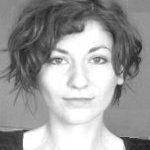 Adriana Placani (Budapest – Hungary)
Adriana Placani completed her PhD in Political Theory at LUISS Guido Carli University of Rome. She has a Master’s Degree in Political Science (Political Theory) from Central European University in Budapest, and a Bachelor’s Degree in International Economic Relations from The Academy of Economic Studies in Bucharest. In 2011, she was a Visiting Scholar at Columbia University Law School in New York.
Adriana Placani (Budapest – Hungary)
Adriana Placani completed her PhD in Political Theory at LUISS Guido Carli University of Rome. She has a Master’s Degree in Political Science (Political Theory) from Central European University in Budapest, and a Bachelor’s Degree in International Economic Relations from The Academy of Economic Studies in Bucharest. In 2011, she was a Visiting Scholar at Columbia University Law School in New York.
Mariagrazia Portera (Modena – Italy) Mariagrazia Portera holds a PhD in Philosophy (Aesthetics) from the University of Florence. Her research interests lie in Aesthetics, History of Philosophy, Evolutionary Biology. She has published papers and book chapters on the evolutionary genesis of human aesthetic attitude, on the origin of the arts, on the epistemology and research methodology of Evolutionary Aesthetics. She has spent several research stays in European Universities, such as in Berlin, London, Vienna, Stuttgart, Freiburg i.B.
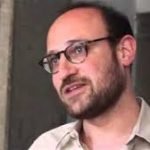 Aron Schuster ( Berlin, Germany)
Aaron Schuster received his BA from Amherst College (USA), where he specialized in legal theory, and MA and PhD in Philosophy from the Katholieke Universiteit Leuven (Belgium). His doctoral dissertation, The Trouble With Pleasure: Philosophy and Psychoanalysis, examined the concept of pleasure in the history of philosophy, concluding with Freud and Lacan. He was a researcher at the Jan van Eyck Academie in 2005-2006, and has taught at PARTS (Performing Arts Research Training Studios) in Brussels. He is a currently the theory instructor at the Sandberg Institute, Amsterdam. In addition to lectures and publications focusing on 20th century continental philosophy, he has written on contemporary art and culture for Cabinet, Metropolis M, Frieze, and others, and has collaborated as a writer with artists on a number of projects and performances.
Aron Schuster ( Berlin, Germany)
Aaron Schuster received his BA from Amherst College (USA), where he specialized in legal theory, and MA and PhD in Philosophy from the Katholieke Universiteit Leuven (Belgium). His doctoral dissertation, The Trouble With Pleasure: Philosophy and Psychoanalysis, examined the concept of pleasure in the history of philosophy, concluding with Freud and Lacan. He was a researcher at the Jan van Eyck Academie in 2005-2006, and has taught at PARTS (Performing Arts Research Training Studios) in Brussels. He is a currently the theory instructor at the Sandberg Institute, Amsterdam. In addition to lectures and publications focusing on 20th century continental philosophy, he has written on contemporary art and culture for Cabinet, Metropolis M, Frieze, and others, and has collaborated as a writer with artists on a number of projects and performances.


